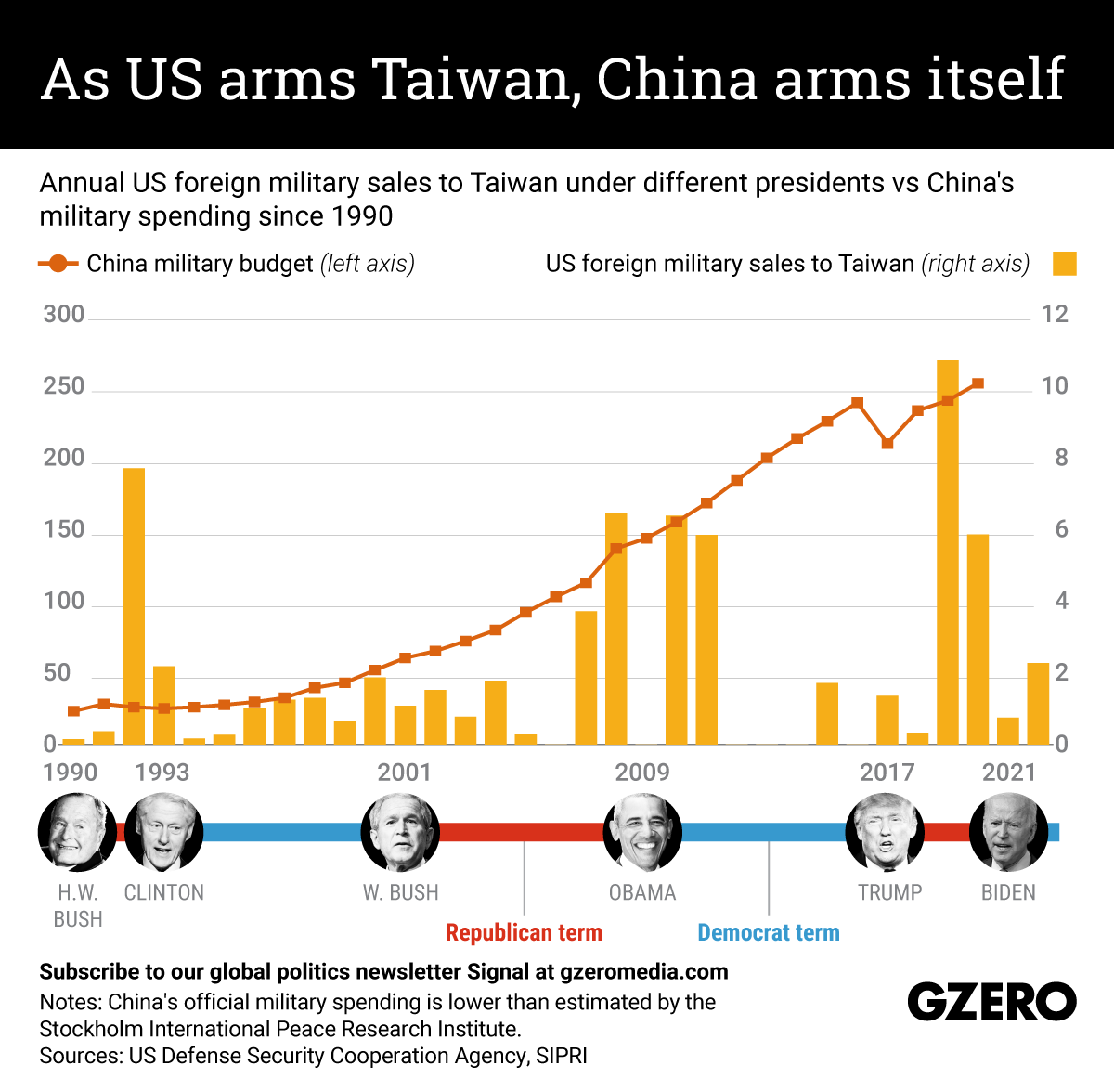September 05, 2022
The White House announced on Friday that it plans to sell Taiwan $1.1 billion worth of new weapons, its biggest arms sale to the self-governing island since President Joe Biden took office. It's also the first since China upended the status quo in the Taiwan Strait in response to US House Speaker Nancy Pelosi's uber-controversial trip to Taipei.
For decades, the US has sold weapons to Taiwan over China's strong objections. While Beijing claims the island is part of the People's Republic of China, Washington does not take a position on the question of Taiwan's sovereignty, holding that the issue should be resolved peacefully by both sides — while supporting Taiwan's self-defense capabilities. But tensions between Washington and Beijing over Taiwan have been rising as the US-China relationship deteriorates more broadly.
If China were to someday invade Taiwan — which it regards as a renegade province that sooner or later will be brought under mainland control — would the US come to the island's defense? A 1979 law provides "strategic ambiguity" on whether America would have to do so. In the meantime, US arms sales have bolstered Taiwan's defense deterrent while China's military budget has skyrocketed.
We take a look at US military sales to Taiwan compared with China's own defense spending since 1990.
From Your Site Articles
- US & China's changing status quo on Taiwan - GZERO Media ›
- US & China's changing status quo on Taiwan - GZERO Media ›
- US and China's changing status quo on Taiwan - GZERO Media ›
- Romney: "We're not as militarily ready as we would like" in the Pacific - GZERO Media ›
- US intel leak shows rising risk of NATO-Russia conflict - GZERO Media ›
- Podcast: How a US-China war could happen: Warning from ret. admiral James Stavridis - GZERO Media ›
- Mitt Romney interview: DC dysfunction, Russian attacks and banning TikTok - GZERO Media ›
More For You
Xi Jinping has spent three years gutting his own military leadership. Five of the seven members of the Central Military Commission – China's supreme military authority – have been purged since 2023, all of whom were handpicked by Xi himself back in 2022.
Most Popular
Sponsored posts
Five forces that shaped 2025
What's Good Wednesdays
What’s Good Wednesdays™, January 28, 2026
Walmart sponsored posts
Walmart’s commitment to US-made products
- YouTube
In this episode of GZERO Europe, Carl Bildt examines how an eventful week in Davos further strained transatlantic relations and reignited tensions over Greenland.
- YouTube
In this episode of "ask ian," Ian Bremmer breaks down the growing rift between the US and Canada, calling it “permanent damage” to one of the world’s closest alliances.
An employee works on the beverage production line to meet the Spring Festival market demand at Leyuan Health Technology (Huzhou) Co., Ltd. on January 27, 2026 in Huzhou, Zhejiang Province of China.
Photo by Wang Shucheng/VCG
For China, hitting its annual growth target is as much a political victory as an economic one. It is proof that Beijing can weather slowing global demand, a slumping housing sector, and mounting pressure from Washington.
© 2025 GZERO Media. All Rights Reserved | A Eurasia Group media company.
